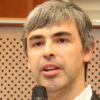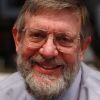7 Light Books That Illuminate Science, Wellness & Art
Recommended by Nobel laureates Larry Page, Donna Strickland, and Steven Chu, these Light Books offer deep insights across physics, health, and photographic lighting.






What if the nature of light could reveal not just how we see the world, but also unlock mysteries spanning quantum physics, health, and art? Light is far more than illumination; it’s a force that shapes reality and influences our well-being in profound ways. Today, understanding light is more crucial than ever—from advancing physics to improving health therapy and mastering photography.
Larry Page, co-founder of Google, and Nobel laureates like Donna Strickland and Steven Chu have guided many through the complexities of light. Page values Richard Feynman’s approachable take on quantum electrodynamics in QED, while Strickland and Chu emphasize the enduring impact of Principles of Optics for both teaching and research. Their endorsements stem from deep engagement—whether pioneering lasers or advancing optics theory.
While these expert-curated books provide proven frameworks and timeless insights, you might want to explore content tailored to your background, skill level, and specific interests. Consider creating a personalized Light book that builds on these authoritative texts to accelerate your learning journey.
by Richard P. Feynman, Anthony Zee··You?
by Richard P. Feynman, Anthony Zee··You?
Richard Feynman, a Nobel Prize-winning physicist and professor at Caltech, brings his knack for clear explanation to the notoriously complex topic of quantum electrodynamics (QED). Instead of math-heavy formulas, he uses everyday language, intuitive visuals, and his famous Feynman diagrams to unravel how light interacts with matter. You’ll gain insight into the fundamental processes governing photons and electrons, exploring phenomena like reflection, refraction, and scattering through a fresh, conceptual lens. If you’re curious about the quantum world but wary of dense physics texts, this book will deepen your understanding without overwhelming you.
Recommended by Donna Strickland
University of Waterloo, Nobel Prize in Physics 2018
“I fondly remember Emil Wolf’s genuine kindness. For example, he offered me a ride in a snow storm without recognizing that I was a student walking to his class. I wouldn’t be without Principles of Optics in my office. So many times I have used it to better understand an optics concept that I am either teaching or using in my own research.” (from Amazon)
by Max Born, Emil Wolf··You?
by Max Born, Emil Wolf··You?
Drawing from Max Born's distinguished career in quantum mechanics and Emil Wolf's expertise, this edition updates a foundational resource in optics. You explore rigorous mathematical treatments of diffraction theory, scattering, and tomography, with added chapters on CAT scans and periodic potentials that deepen your understanding of light's behavior in complex media. The text suits advanced undergraduates, graduate students, and professionals aiming to grasp classical optics' core principles and their modern applications. For instance, the section on Rayleigh–Sommerfield diffraction theory offers precise insights that illuminate challenging concepts you might encounter in research or teaching.
by TailoredRead AI·
This tailored book explores the multifaceted nature of light, focusing on your unique background and goals to illuminate its physics and practical uses. It covers foundational principles such as wave-particle duality, electromagnetic theory, and quantum behavior, progressing to specialized topics like nonlinear optics and advanced photonics. The content reveals how light interacts with matter, enabling deeper understanding of phenomena like diffraction and scattering, while also examining applications in technology, health, and art. By tailoring the material to your interests and expertise, this personalized guide fosters a clearer grasp of complex concepts and presents a pathway through light’s vast scientific landscape that aligns precisely with what you aim to master.
Recommended by Alain Aspect
Augustin Fresnel Professor, Institut d'Optique
“Classical wave-optics was my first love, and I am sure Charles Adams and Ian Hughes's book will be responsible for many cases of love at first sight among younger readers. It is a rich blend of useful computer outputs with the results of the beautiful methods developed in the 19th century by scientists, whose only option was to be smart, since they had no computers.” (from Amazon)
by Charles S. Adams, Ifan G. Hughes··You?
by Charles S. Adams, Ifan G. Hughes··You?
Charles S. Adams and Ifan G. Hughes bring their deep academic and research expertise to this textbook, which explores wave optics through a distinctive lens: Fourier methods and the angular-spectrum approach. You learn how foundational wave types, like plane and spherical waves, build up complex phenomena such as diffraction, laser beam propagation, and light-matter interactions. The book’s over 240 illustrations and 200 exercises make these abstract concepts tangible, especially chapters on apodisation and tightly-focused vector fields. If you're studying or working in contemporary optics, this text offers a solid grasp of both classical and modern analysis techniques without unnecessary jargon or fluff.
by Robert W. Boyd, Debbie Prato··You?
by Robert W. Boyd, Debbie Prato··You?
Robert W. Boyd, a Professor of Optics at the University of Rochester with a Ph.D. from UC Berkeley, offers a deep dive into how intense laser light interacts with matter in this third edition of Nonlinear Optics. This book lays out fundamental concepts and the latest advancements in optical physics, focusing on nonlinear phenomena, and explains these with clarity suitable for students and professionals alike. You’ll explore topics ranging from the basics of optical response to cutting-edge applications in materials science and electrical engineering. Though technical, it serves those aiming to grasp the physics behind nonlinear light behavior and its practical implementations.
by Walter Russell··You?
by Walter Russell··You?
What started as Walter Russell's quest to bridge intellect and spirit became a distinctive exploration of light's cosmic significance. In this work, you uncover light beyond its physical traits, delving into its spiritual dimensions and how it forms the universe’s fundamental structure. Chapters reveal concepts like the spiritual and intellectual balances in existence, the three cosmic pillars involving divine light, and the spiraling forms that underpin creation. This book suits those intrigued by both scientific and philosophical perspectives on light, offering insights that challenge conventional physics without demanding specialized technical knowledge.
by TailoredRead AI·
This tailored book offers a focused journey into the science and practical uses of light, designed to match your background and interests. It explores foundational principles of optics alongside actionable knowledge boosts that bridge expert research with your learning goals. Through a personalized approach, it examines how light interacts with matter, reveals core concepts in both classical and modern optics, and guides you through hands-on applications to deepen understanding. By concentrating on your specific goals, this book uncovers fascinating aspects of light's behavior and its real-world implications, helping you grasp complex ideas through a tailored pathway. It’s a unique opportunity to explore light science in a way that truly resonates with your curiosity and expertise.
by Jacob Liberman··You?
by Jacob Liberman··You?
After analyzing extensive clinical cases, Jacob Liberman found that modern indoor lifestyles and artificial lighting often disrupt natural light's healing potential. Drawing from his work with over 15,000 individuals, including Olympic athletes and executives, he explores how specific light wavelengths can influence health conditions ranging from depression and immune function to visual and learning disabilities. You gain insight into how common technologies like fluorescent lighting and sunglasses may inadvertently harm well-being, while discovering how light therapy can be integrated to address diverse medical and psychological challenges. This book suits those interested in alternative health approaches and the science behind light's therapeutic effects.
by Fil Hunter, Steven Biver, Paul Fuqua, Robin Reid··You?
by Fil Hunter, Steven Biver, Paul Fuqua, Robin Reid··You?
The methods Fil Hunter developed during his extensive commercial photography career shape this book into a thorough guide on photographic lighting. You’ll gain a solid grasp of light’s nature and principles, backed by clear examples and practical guidance on challenging subjects like metal, glass, and portraits. It’s especially useful if you want to bolster your technical skills in studio and location lighting setups, with updated insights into modern equipment like LED panels and flash technology. The book’s layered approach benefits photographers across experience levels, though beginners might find some sections dense without hands-on practice.
Get Your Personal Light Strategy Fast ✨
Stop wading through generic info. Gain targeted insights in minutes tailored to your Light interests.
Trusted by physicists, health experts, and photographers worldwide
Conclusion
Across this collection, three themes stand out: the fundamental physics of light, its practical applications in health and photography, and the philosophical reflections on its cosmic role. If you're grappling with quantum concepts, QED offers an accessible gateway, while Principles of Optics and Optics f2f anchor you firmly in classical and wave optics. For those drawn to applied science, Nonlinear Optics and Light provide insights into intense light interactions and therapeutic uses.
Photographers seeking to elevate their craft will find Light ― Science & Magic invaluable for mastering lighting techniques that transform images. And if you're intrigued by the intersection of science and spirituality, The Secret of Light opens a unique perspective bridging these worlds.
Alternatively, you can create a personalized Light book to bridge the gap between general principles and your specific situation. These books can help you accelerate your learning journey and deepen your understanding of light's many facets.
Frequently Asked Questions
I'm overwhelmed by choice – which book should I start with?
Start with QED if you're curious about quantum aspects or Principles of Optics for classical foundations. Both have strong expert endorsements and provide clear, insightful approaches to light.
Are these books too advanced for someone new to Light?
Some are technical, like Nonlinear Optics, but titles like The Secret of Light and Light ― Science & Magic offer accessible insights bridging science and practical application, suitable for newcomers.
What's the best order to read these books?
Begin with foundational texts like Principles of Optics and QED, then explore specialized topics such as nonlinear phenomena and therapeutic uses. Finish with practical guides like Light ― Science & Magic.
Do these books assume I already have experience in Light?
While some texts are advanced, authors like Richard Feynman in QED and the accessible style of Light ― Science & Magic make complex topics understandable even if you're new to the field.
Which books focus more on theory vs. practical application?
Principles of Optics and Nonlinear Optics emphasize theory, while Light focuses on health applications and Light ― Science & Magic on photographic techniques, blending theory with practice.
Can I get personalized Light insights without reading all these books?
Yes! While these expert books offer valuable knowledge, a personalized Light book can tailor insights to your goals and background, helping you apply expert knowledge efficiently. Try creating your own.
📚 Love this book list?
Help fellow book lovers discover great books, share this curated list with others!
Related Articles You May Like
Explore more curated book recommendations






